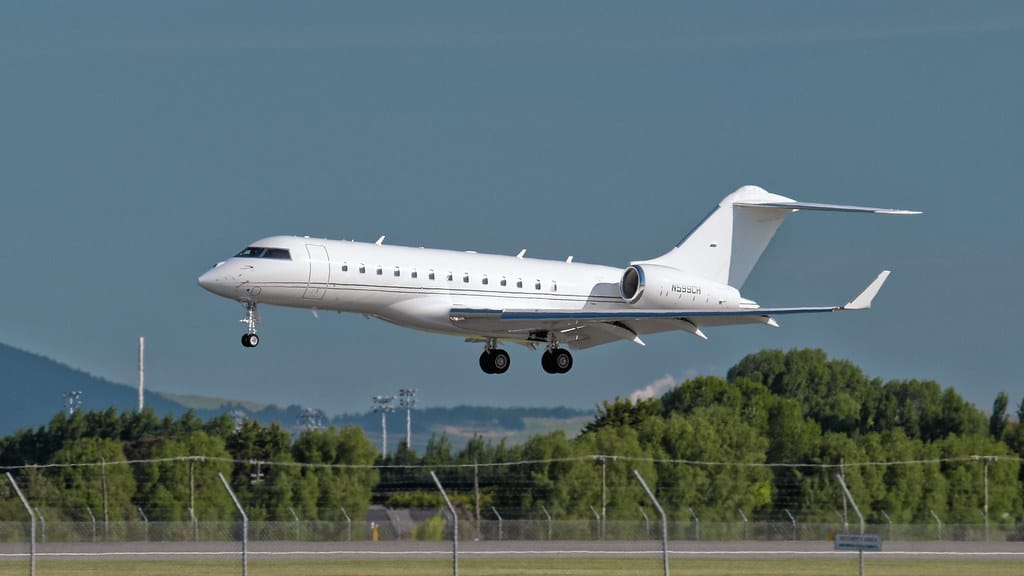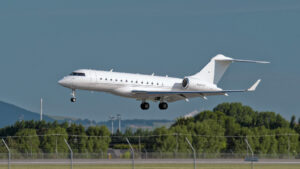
Flights canceled as aviation industry woes mount

Russian airlines halted most international flights Wednesday and the government is preparing plans for the de facto nationalization of foreign aircraft. Even domestic aviation faces an uncertain future: sanctions means it will be hard to service planes.
- Russia’s aviation authorities are concerned planes could be impounded at foreign airports at the request of lessors or insurers. European Union sanctions mandate that Russian companies return all Airbus planes and any other aircraft belonging to European leasing companies by the end of this month. In addition, Airbus, Boeing and other major Western aircraft-manufacturers will no longer carry out repairs or supply spare parts for aircraft operated by Russian carriers.
- The Ministry of Transport and the government are drawing up plans to ensure planes remain in Russia. These envisage returning some aircraft to leasing companies, with a permit from a government commission required for the return. The planes that the government decides should remain in Russia will effectively be requisitioned — their European owners will be asked to accept future payment in rubles (something of course not allowed under current leasing arrangements).
- There is no consensus on which aircraft to return and which to impound, sources told newspaper Kommersant on Wednesday. On the one hand, it’s easier to maintain older aircraft and source supplies from the “gray market”; on the other hand, newer jets have more time before they need a major overhaul.
- A Transport Ministry source told Kommersant that the plans under discussion would enable carriers to “save face”. But many others are more pessimistic. European aircraft owners may be content to accept further payments, even in rubles, but are unlikely to accept risk violating sanctions, one airline source told the newspaper. A source in the leasing market described the Ministry’s plan as “pseudo-legalized robbery” that foreign lessors will challenge in court — and it will all end up in the seizure of Russian state property abroad as compensation.
- Russian individuals involved in this process risk sanctions and criminal prosecution. At least a dozen of The Bell’s sources in the aviation industry said it was this threat that led to the unexpected resignations of the head of low-cost airline Pobeda, Andrei Kalmykov, and the head of national carrier Aeroflot, Mikhail Poluboyarinov. The current whereabouts of both men is unknown (Poluboyarinov was sanctioned Wednesday by the EU). Aeroflot deputy head Andrei Panov said Saturday that he had resigned from the company and left the country. “We’ve left Russia. I left Aeroflot. The old life has ended,” he wrote on Facebook.
- Private airlines are trying to come up with ways to escape sanctions and continue flying — but with little success. The most striking example so far was the reported attempt by Russia’s biggest charter companies — Azur Air, Royal Flight Nordwind and Pegas Fly — to re-register 93 of their aircraft in Turkey. In theory, this was a way of escaping sanctions. But the Russian aviation authorities stepped in and foreign aircraft belonging to the companies were banned from flying abroad.
Russian airlines — especially private carriers — are in an unenviable position. Returning half their aircraft (in some cases — such as Ural Airlines — their entire fleet) is starting to look like the least-worst option. But, for now, a substantial requisition is the more likely scenario — something that would mean serious legal problems for the heads of Russia’s airlines, and would not resolve the problems facing domestic aviation.
“Ural Airlines planes can fly safely for two months, maybe three, without trashing the fleet, without stopping planes and without ‘vandalism’ [taking parts from one plane to repair another],” Igor Poddubny, director of Ural Airlines’ technical center said Thursday. Nor is there much hope that China could step in to save Russian airlines — on the same day as Poddubny’s comments, Valery Kudinov, the head of maintenance at regulator Rosaviatsia, said China would not supply Russian airlines with sanction-busting spare parts.
International flights also face mounting issues. For the moment, Russian carriers can only fly abroad without risk of their planes being impounded if they use the Russian-made Sukhoi Superjet 100 (SSJ). Carriers are already developing new schedules for SSJ flights to countries that have not shut their airspace to Russia, above all Turkey. But the SSJ is limited by a range of about 1,860 miles and a capacity of 98 seats.
For those wanting to fly in and out of Russia, another option is to book a ticket with foreign carriers based in countries that are still flying to Russia. But the future of this option is also far from certain. Five airlines from countries that have not sanctioned Russia last week announced a suspension of flights: Kazakhstan’s Air Astana, Egypt Air, Azerbaijan’s Azal (and its affiliated lowcoster Buta Airways), and Turkish budget carrier Pegasus. The reason in all cases was the refusal of insurance companies to cover aircraft in Russian airspace.
A statement from The Bell: The risks for journalists working in Russia are extremely high as a result of a new law that punishes the spread of ‘fake news’ with up to 15 years in jail. As Russian officials refuse to describe events in Ukraine as a ‘war’, preferring the term ‘special military operation’, we believe we can no longer safely cover events in Ukraine. As a result, we’re halting all direct coverage of Russia’s ‘special military operation’ until further notice — although we will continue to report on its far-reaching economic, political and social consequences. If you notice that we’re being circumspect about our language — you’re right. We are. We believe it’s the only way to protect our journalists.



